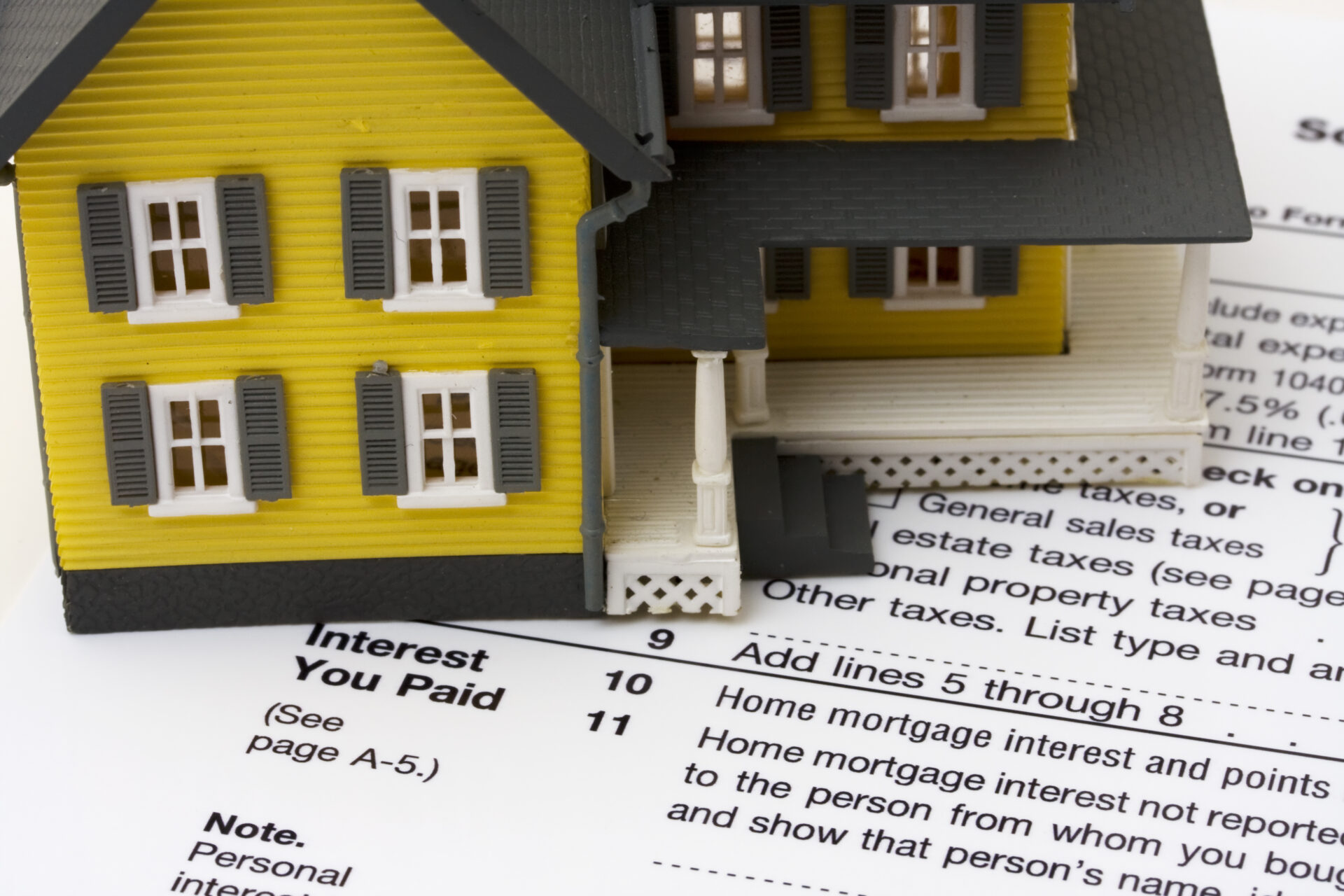By DAVE HEISTEIN
Dealing with homeowner tax deductions can seem tough, but it’s key to making the most of your home financially.
In this article, we’ll make taxes easier for you to understand. From breaking down various tax deductions to highlighting tax considerations for home improvements, we’re here to simplify these complex topics.
Understanding Homeowner Tax Deductions
As a homeowner, you’re entitled to several tax deductions that can help you save money. Let’s break down five key tax deductions.
- Mortgage interest deduction: This allows you to deduct the interest paid on mortgage debt up to $750,000 ($375,000 if filing separately). To claim this, you need to itemize your deductions on Schedule A (Form 1040). It’s important to compare your itemized deductions with your standard deduction to see if this is beneficial for you. If your mortgage was taken out after 1987 and you’re a high earner, there might be some limitations on this deduction.
- Deduction for mortgage points: Points purchased on your mortgage are tax-deductible as they are considered a form of mortgage interest. Typically, you’ll spread this deduction over the life of the loan.
- Interest on home equity loans or lines of credit: If your home equity loan or home equity line of credit (HELOC) was taken before 2018 and used for home improvements, the interest may be deductible. This deduction is not available for home equity loans or HELOCs initiated between 2018 and 2025.
- Property tax deduction: Homeowners can deduct up to $10,000 in state and local taxes, including property taxes ($5,000 if married and filing separately). If you want to benefit from this, your total itemized deductions must exceed the standard deduction. This deduction doesn’t cover transfer taxes, homeowners association fees, or utility charges.
- Residential energy credits: You can claim credits for installing energy-efficient systems like solar panels. Qualifying improvements include solar electric and water heaters, geothermal heat pumps, and more. The credit amount varies depending on the installation date.
Remember, navigating tax deductions can be complex, and consulting a professional tax accountant is always recommended to ensure you maximize your benefits. They can provide personalized guidance to help you fully understand these deductions.
Navigating Mortgage Interest Deductions
Mortgage interest deduction allows you to reduce your taxable income by the amount of interest paid on your loan annually. Only the interest portion of your mortgage payment is deductible, not the principal, down payment, or mortgage insurance premiums (after 2021).
Non-deductible costs include interest on third or additional homes, reverse mortgages (until paid), mortgage insurance, homeowners insurance, appraisal fees, notary fees, and closing costs.
So, how can you simplify this process?
First, it’s crucial to keep all your mortgage-related documents organized. Save all your mortgage statements and any receipts for home improvements.
Understanding the structure of your loan is also important. Know the difference between the principal and interest portions of your mortgage payments. Only the interest part is deductible, so it’s good to know how much that is.
There are various online tools available, like mortgage interest deduction calculators. These can give you an estimate of how much you might save on taxes, which can be pretty handy.
If you have a home equity loan or a home equity line of credit, make sure you use this money for things that qualify, like home improvements. This way, you can deduct the interest you pay on these loans.
Turning Your Space Into Tax Savings
If you use a portion of your home exclusively for business, you might be able to claim a home office deduction. This means you can deduct expenses like a portion of your utilities, home insurance, and even home repairs based on the size of your home office compared to your whole house.
For instance, if your home office takes up 10% of your home, you could potentially deduct 10% of these costs. But remember, the space must be used regularly and only for business purposes.
Also, if you’ve made energy-efficient improvements, like installing solar panels, you might qualify for residential energy credits. These credits can directly reduce the amount of tax you owe, not just your taxable income.
Tax Considerations in Home Improvements and Renovations
If you’re thinking about home improvements or renovations, it’s smart to consider the tax implications. Some home upgrades can actually help you with tax deductions or credits.
As we’ve previously mentioned, if you installed solar panels or a new heating system, you could qualify for residential energy credits.
But it’s important to know that not all home improvements will give you a tax break. Regular repairs and maintenance, like painting or fixing leaks, usually don’t qualify for tax deductions. However, if these repairs are part of a larger renovation that increases your home’s value, they might count.
Also, if you’re improving your home for medical reasons, like installing ramps or modifying bathrooms for accessibility, these expenses can be deductible. You’ll need to show that these changes are medically necessary.
The key is to understand which improvements can give you tax benefits. Keeping good records of all your expenses is crucial. When tax time comes, you can see which renovations may qualify for deductions or credits. This way, your home improvements can be both a personal upgrade and a smart tax move.
Remember, each deduction you claim brings you closer to maximizing your home’s tax advantage. So, take the time to explore these options and make informed decisions to help your finances flourish!
Dave Heistein, CPA, is the co-founder and managing partner of Profitwise Accounting. He is an advanced QuickBooks Pro-Advisor and skillful e-commerce tax accountant with more than 18 years of experience in finance, tax, and operational management.
